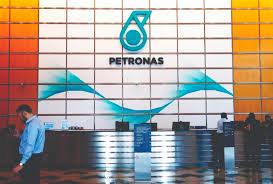PETALING JAYA: The loss reported by Petroliam Nasional Bhd (Petronas) in second-quarter 2020 (Q2’20) and the subsequent cautious spending approach adopted by the national oil company is anticipated to have a cascading-down effect to affect local players across the value chain.
Kenanga Research said the lowered capex would translate into greater job deferments across the board and less greenfield contracting opportunities, impacting fabricators, hook-up and commissioning works outfits, drilling rig providers, etc.
Meanwhile, lowered opex could possibly exert margin and pricing pressures on local-centric contractors and service providers such as Dayang and Uzma.
“Generally, lowered offshore activity levels could also translate into lower offshore support vessel utilisations, impacting players such as Perdana and Icon,” it said in a report.
The research house opined that while H2’20 will almost certainly see improved results over the previous half, contributed by mild rebound in crude oil prices coupled with easing of lockdowns, it believes oil production and activity levels are still very unlikely to return to pre-pandemic levels at least for the next 12-18 months.
Currently, Petronas is seeing a long-term crude oil price of US$50-60 per barrel (pb) compared with US$60-70 pb, previously.
“As such, we still feel that further impairments, disposals, refinancing, restructuring and M&As are still possible within the sector moving forward as companies undergo cost saving measures in order to meet debt repayment obligations,” it said.
Kenanga Research maintained its neutral call on the sector. It cited that valuations in the sector are still not particularly attractive, and hence, the research house would prefer to wait for fundamentals to play catch-up before reconsidering entry opportunities.
TA Securities expects Petronas’ capex cut will like to emanate from reduced activity, new project delays and greater cost control. It anticipated that a reduction in capex spend will lead to lack of new projects and contract awards, which would spiral into intense competition in an oversupplied market.
“In turn, this would exacerbate weakness in daily charter rates and fleet utilization. On the back of this, upstream service providers face earnings and balance sheet risks,” it said in a report yesterday.
“This is mainly driven by lack of order book replenishment and margin compression. The current downcycle will likely persist as long as Covid-19 headwinds linger.”
For 2020, the research house maintained its forecast of a US$45 pb average for the year, backed by active market management by Opec+, declining US and non-Opec production, improvement in demand as leading indicators suggest uptick in economic activity in some sectors and inventory drawdowns in H2’20 will normalise bloated stockpiles accumulated in H1’20.
TA Securities maintained an underweight call on the oil & gas sector citing that upstream service contractors may slip back to losses and face insolvency risks if oil headwinds persist. “Even with a steep V-shape rebound in oil prices, oil companies may still be unwilling to turn on the capex tap. This is unless there is evidence of a sustainable long term rally in oil price.”










